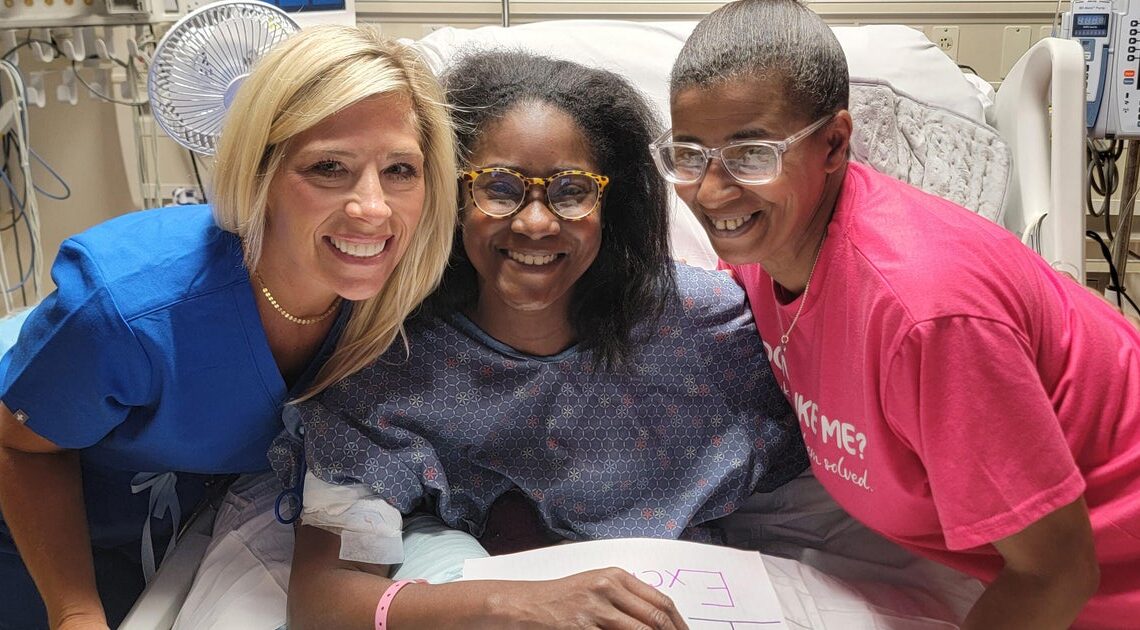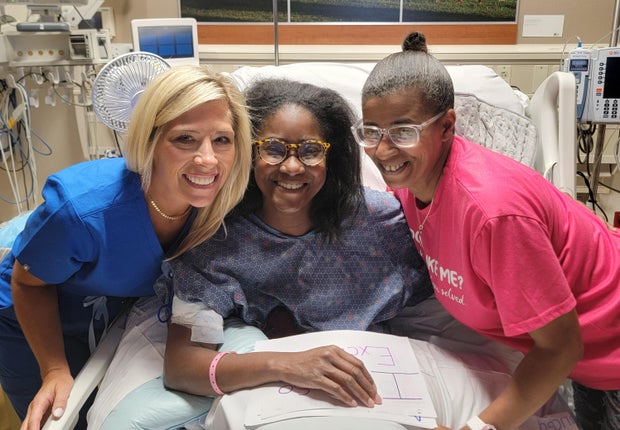
She shared her story of life on dialysis. Now she has a new kidney: “God found me the perfect match.”
25. July 2025
After 10 years on dialysis, and just days after the story of her long wait for a transplant was featured on “CBS Sunday Morning,” LaQuayia “LQ” Goldring, 35, has a new kidney.
Before receiving her transplant, Goldring spent up to four and a half hours a day hooked up to a home dialysis machine.
“Every day I wake up, I’m thanking God that my feet even hit the ground and that my eyes open and I can still breathe on my own,” she said in an interview in January.
In her interview, Goldring described the challenges of life as one of roughly 500,000 Americans dependent on dialysis to stay alive, and detailed the uncomfortable shortcomings of care provided by for-profit clinics. She received the treatment at home and said dialysis clinics left her with no control over her care, treating her like a “check.”
A seven-month CBS News investigation looked at how two for-profit companies grew into what experts term a “duopoly,” dominating the market nationwide. Critics have accused the firms of prioritizing profits over the care of patients on dialysis.
The two largest for-profit companies in the dialysis industry, Fresenius and DaVita, dispute those criticisms.
Fresenius told CBS News in a statement that the company maintains an “unwavering focus on improving quality of life, strengthening clinical outcomes, and extending the lifespan of those we have the privilege to serve.” DaVita said in a statement that its “dedicated clinicians consistently deliver high-quality, individualized care in a complex clinical and regulatory environment.”
Less than a week after her interview aired in June, Goldring received a life-saving kidney transplant through a living donor.
At the age of 3, cancer caused both of Goldring’s kidneys to fail. She received her first transplant as a teenager from a deceased donor, but when it lost function in 2014, she had to go back on dialysis.
In her campaign for a new kidney, Goldring stopped at nothing — posting billboards in her community and becoming an outspoken advocate for those suffering from advanced kidney disease.
On Monday, June 20, she got the call that she was a match for a kidney transplant. By that Friday, she was on the operating table.
“They asked me if I was scared or had any concerns, and I said none,” Goldring told CBS News in a phone interview. “God found me the perfect match.”
Courtesy of LaQuayia “LQ” Goldring
Goldring said she plans to continue sharing her story, emphasizing the importance of living donations. Goldring’s kidney was from an unidentified man from Georgia who chose to become a living donor.
“Living and non-living donations saved my life,” Goldring says. “I want to keep spreading that message. People don’t have enough information.”
Dr. Malay Shah of the University of Kentucky’s Transplant Center performed Goldring’s surgery, describing it as “absolutely necessary.”
About one-third of all kidney transplants performed each year in the U.S. are living-donor kidney transplants. And Shah says living-donor kidney transplants have the best outcomes and don’t require as long of a wait time for the patient.
“When a living donor match came about, it was like winning the lottery for her,” said Shah.
While Goldring has been back to the hospital a few times since her transplant, her doctors say that’s normal with recovery.
A kidney transplant is the only option for patients to get off of dialysis. Of the half-million people in the U.S. on dialysis at any given time, nearly 90,000 have qualified for a spot on the waiting list for a kidney transplant, and 11 people die every day waiting for a kidney, according to the United Network for Organ Sharing.
“My hope is that more people will hear about [my story] and more donors will come forth,” says Goldring.
